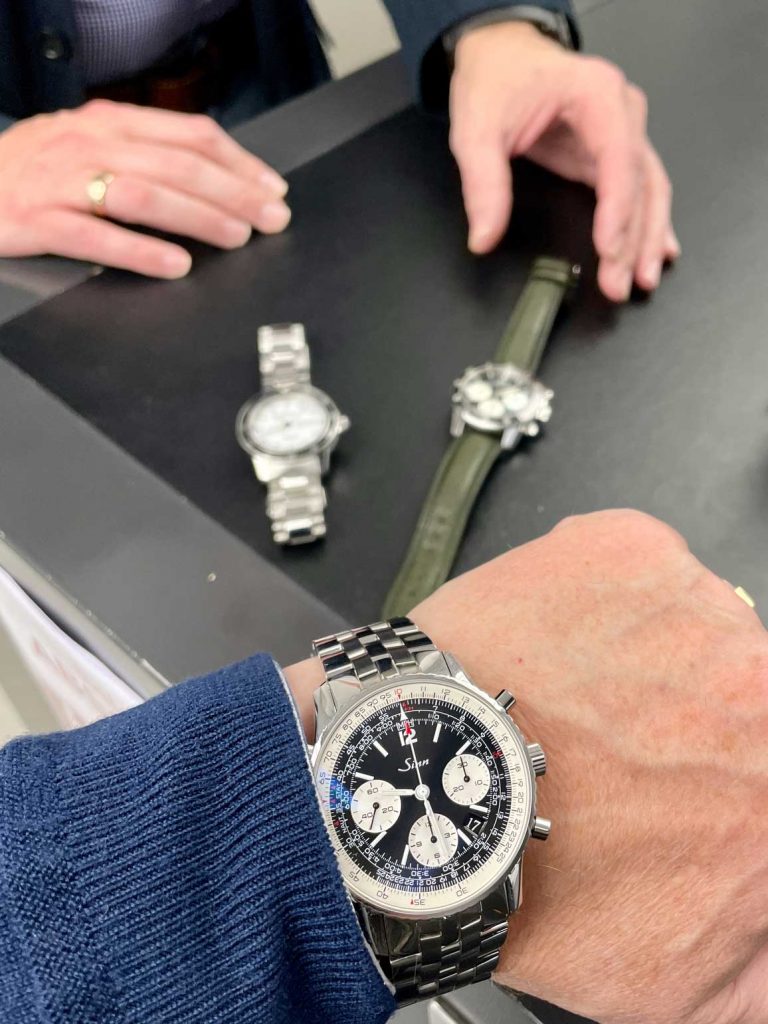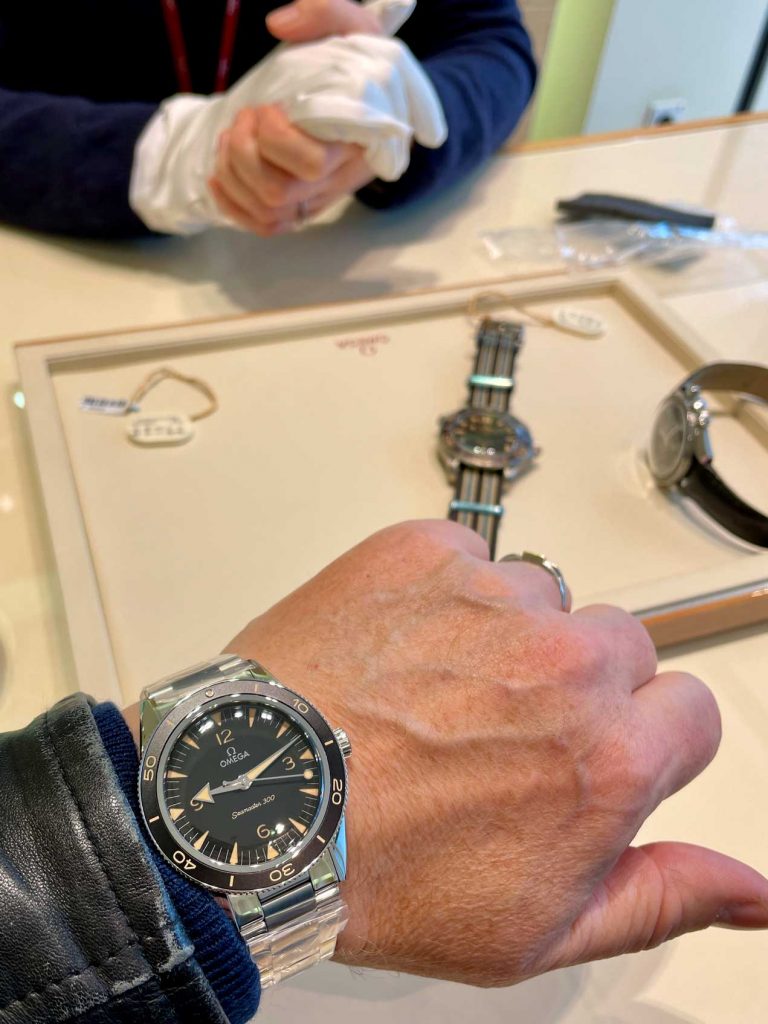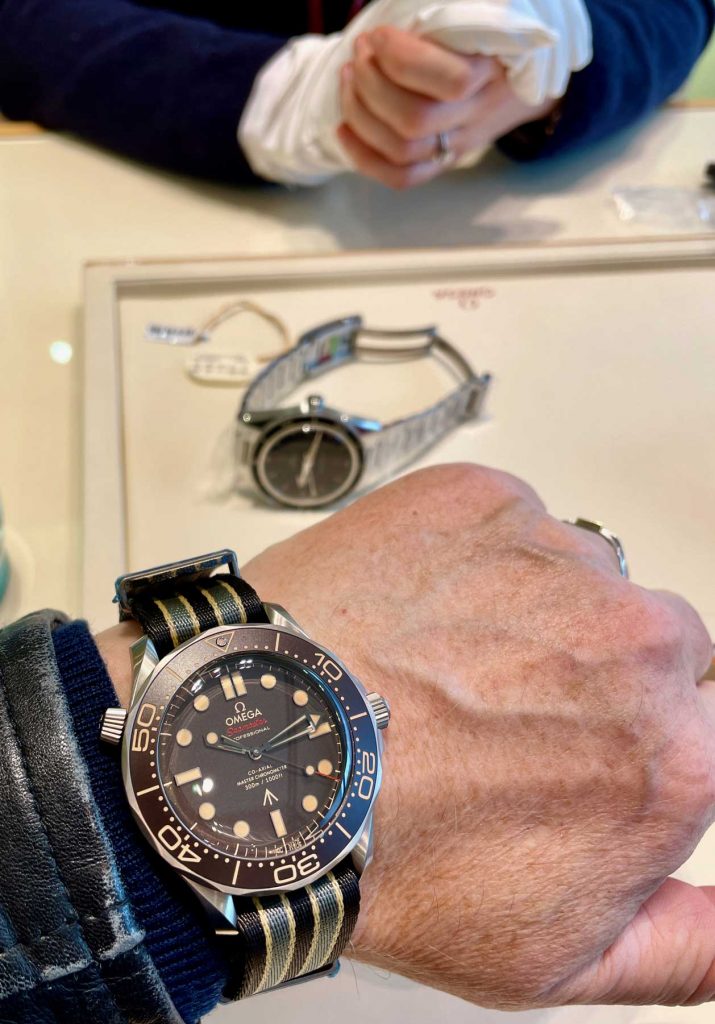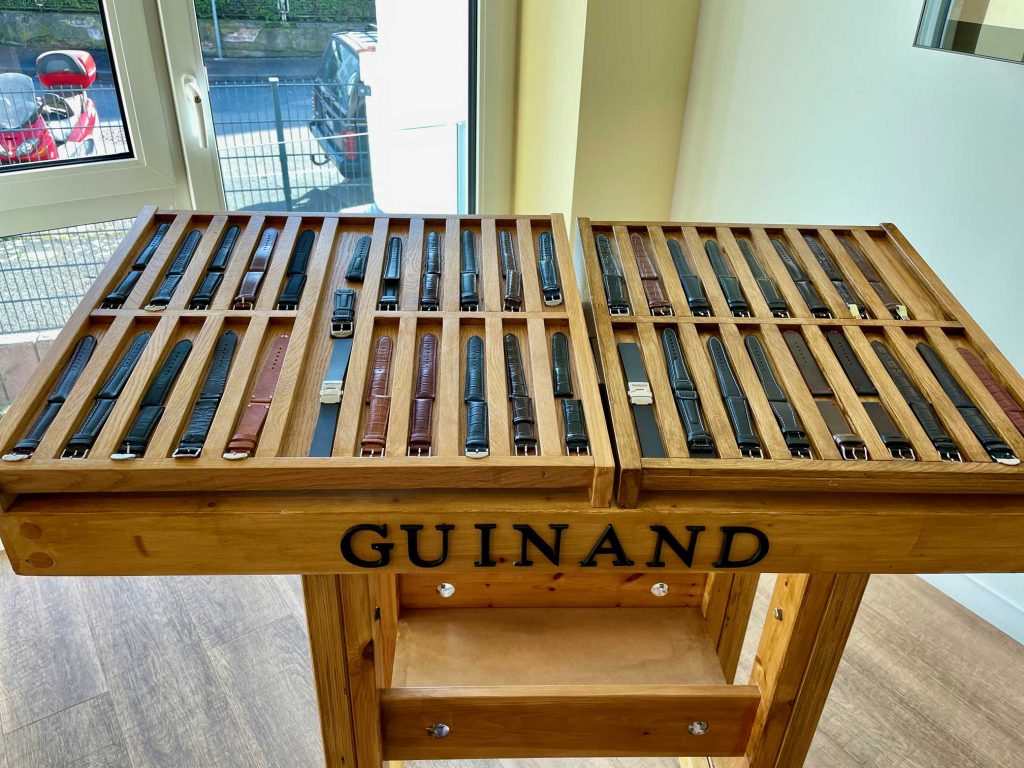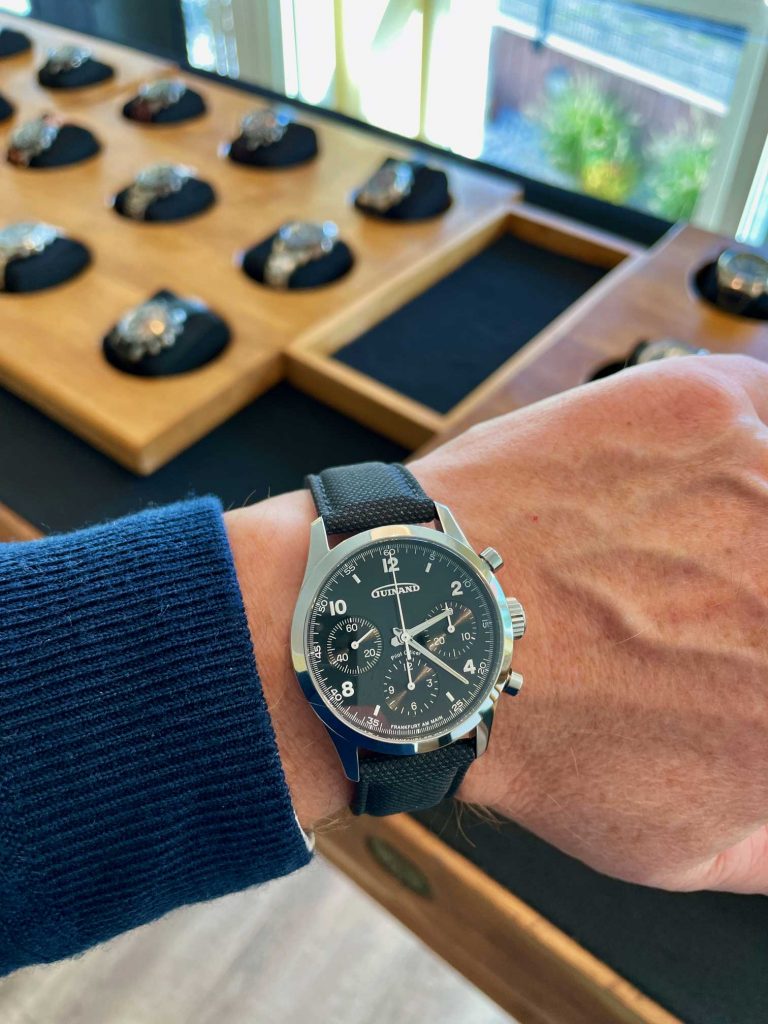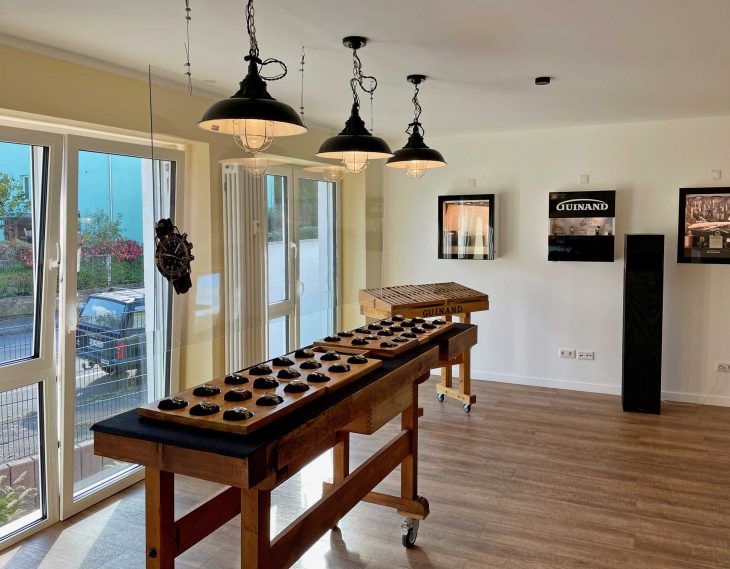
How do small businesses survive the pandemic? They can also go hybrid
While the traditional business models for small manufacturers still exist, for example, manufacturing – wholesaler – retailer – customer, the pandemic has meant a drop in sales at the retail level as people have been forced to stay at home more. This in turn leads to less demand from wholesalers, and in turn, manufactures themselves. But what of Internet sales? This is one area that has had a boom in sales across many consumer categories, especially considering relatively cheap or free delivery for the customer. Add free returns into the mix and you have a good competitive advantage. Although a good example of tactical marketing and gaging customer interest in your products, costs of delivery to the company could be substantial, greatly reducing the profit margin. For many manufactures then, it is a delicate balance of keeping sales up whilst maintaining profit margins.
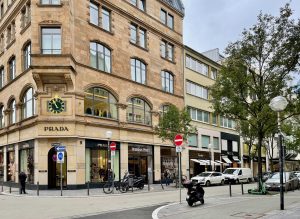
For some time, the mixed model offering to the consumer of having both online and offline sales channels – it seems the term “hybrid” is a trendy way to describe almost anything internet related today – has been working quite well. We can see it in all aspects of purchasing behaviour from supermarket grocery shopping to luxury goods, and is mostly seen in larger retailers, chain stores, and manufacturers. So what of the independent business owner?
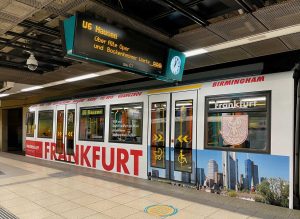

I recently visited Frankfurt, Germany, for a long weekend just to take a break and get the chance to indulge my hobby by visiting a couple of watch manufacturers and also several retail watch stores such as Omega, Hublot, and Cartier, to name but a few. Germany has a solid tradition in watchmaking, almost as well-known for watchmaking as is Switzerland, and Frankfurt is home to two such independent manufacturers – Sinn and Guinand – that I had the pleasure of visiting. Whilst Sinn was founded in 1961 by watchmaker Helmut Sinn in Frankfurt, Guinand was founded much earlier in 1865, by the Guinand brothers in Jura, Switzerland, and in fact Helmut Sinn was a major customer of Guinand, making many pieces for him as for other watch manufacturers. In the mid-90s, Helmut Sinn retired and sold the company, but it wasn’t long before he decided to purchase Guinand himself, and get back into what he loved. At the start of the 21st century, Helmut Sinn moved Guinand from Switzerland to Germany and they started to concentrate on their own brand and the direct-to-customer sales channel.
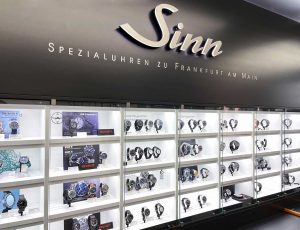

In 2014, Guinand was purchased by a watchmaker and former employee of Sinn, Matthias Klueh, who is still the current owner. Matthias is still committed to the direct sales channel today, and he has a wonderful set-up in Frankfurt where all of his pieces are manufactured. In fact, most of the various watch components are also manufactured in Germany, so when you purchase a Guinand, you can be sure of the label “Hergestellt in Deutschland” (“Made in Germany”) meaning exactly what is says.
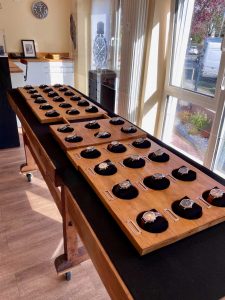
Whilst both Sinn and Guinand have their own online stores for direct sales, Sinn also offers their products through retailers in several countries, whereas Guinand do not have any other intermediaries between them and the customer. For Guinand, Matthias has set-up a factory shop at his site in Frankfurt to ensure that customers can experience a truly tactile in-store experience. My visit there was a wonderful experience seeing all of their current pieces openly on display for the sole-purpose of trying them on – any models purchased come directly from the workshops below and are fully tested prior to release to the customer. There is also an on-site museum for customers to see the history of the brand and the original watches from where some of the current design cues have been taken.
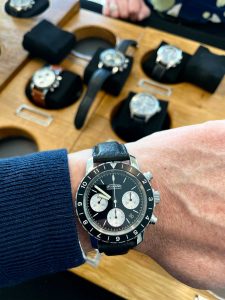
Due to pandemic restrictions, in-store visits to Guinand have been reduced, with most customers needing to pre-arrange an appointment. I was lucky enough that when I arrived unexpectedly, I was warmly greeted by Matthias’s wife Petra, and invited in for a lengthy visit, an espresso and a lovely unique parting gift. My thanks to Matthias and Petra for giving up their valuable time for my impromptu interview.
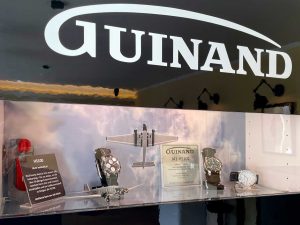
In addition to reduced on-site visits, being a small manufacturer, Matthias also explained how it is important to protect his staff from any exposure at work, “If just one employee gets ill, then there is the risk of all employees being exposed, which would then mean we have to close the business for a short time.” This of course could have a devasting effect on a small business but for now everything is working well. Although things are unclear as yet, Matthias has plans to open up the Guinand manufacturing and service workshop for customer visits as early as 2022, and I am excitingly waiting for an invitation to that.
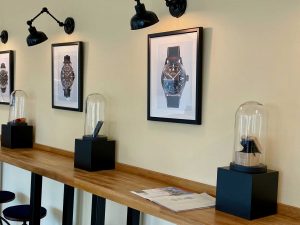
So, being a small, independent manufacturer in the current climate is not easy, but there are ways to protect your business, keep your profit margins, and probably most important of all, keep your current customers satisfied, and attract new ones. Having the possibility of a hybrid sales channel and no intermediaries to take care of, seems to make good business sense.
- IBSEN meeting November 2025 – Split, Croatia - 12th December 2025
- Wondering where to get lunch in Kouvola town? - 5th December 2025
- IBSEN Realgame – an international ERP/SCM experience for students - 28th November 2025

